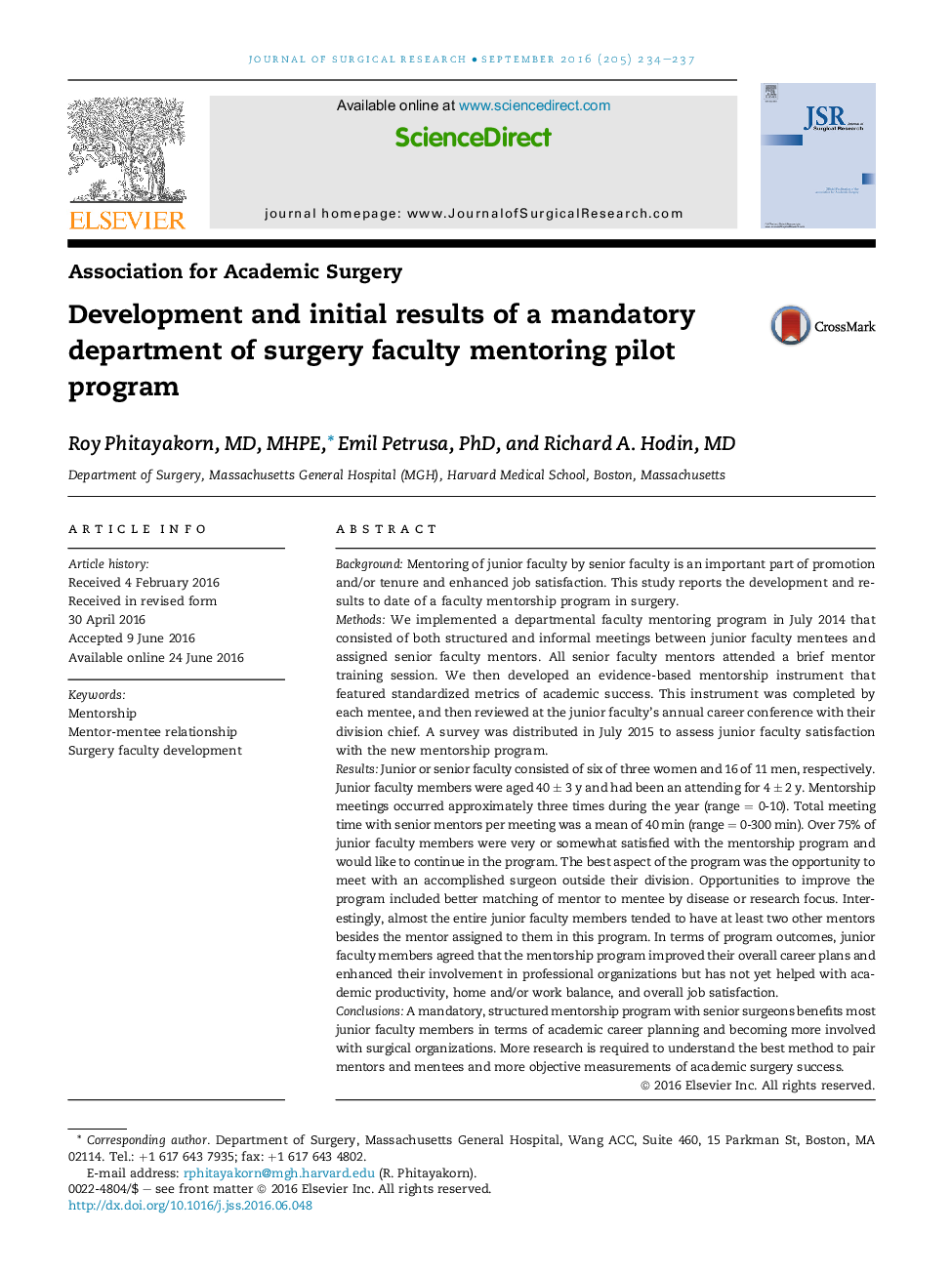| کد مقاله | کد نشریه | سال انتشار | مقاله انگلیسی | نسخه تمام متن |
|---|---|---|---|---|
| 4299307 | 1288388 | 2016 | 4 صفحه PDF | دانلود رایگان |
BackgroundMentoring of junior faculty by senior faculty is an important part of promotion and/or tenure and enhanced job satisfaction. This study reports the development and results to date of a faculty mentorship program in surgery.MethodsWe implemented a departmental faculty mentoring program in July 2014 that consisted of both structured and informal meetings between junior faculty mentees and assigned senior faculty mentors. All senior faculty mentors attended a brief mentor training session. We then developed an evidence-based mentorship instrument that featured standardized metrics of academic success. This instrument was completed by each mentee, and then reviewed at the junior faculty's annual career conference with their division chief. A survey was distributed in July 2015 to assess junior faculty satisfaction with the new mentorship program.ResultsJunior or senior faculty consisted of six of three women and 16 of 11 men, respectively. Junior faculty members were aged 40 ± 3 y and had been an attending for 4 ± 2 y. Mentorship meetings occurred approximately three times during the year (range = 0-10). Total meeting time with senior mentors per meeting was a mean of 40 min (range = 0-300 min). Over 75% of junior faculty members were very or somewhat satisfied with the mentorship program and would like to continue in the program. The best aspect of the program was the opportunity to meet with an accomplished surgeon outside their division. Opportunities to improve the program included better matching of mentor to mentee by disease or research focus. Interestingly, almost the entire junior faculty members tended to have at least two other mentors besides the mentor assigned to them in this program. In terms of program outcomes, junior faculty members agreed that the mentorship program improved their overall career plans and enhanced their involvement in professional organizations but has not yet helped with academic productivity, home and/or work balance, and overall job satisfaction.ConclusionsA mandatory, structured mentorship program with senior surgeons benefits most junior faculty members in terms of academic career planning and becoming more involved with surgical organizations. More research is required to understand the best method to pair mentors and mentees and more objective measurements of academic surgery success.
Journal: Journal of Surgical Research - Volume 205, Issue 1, September 2016, Pages 234–237
